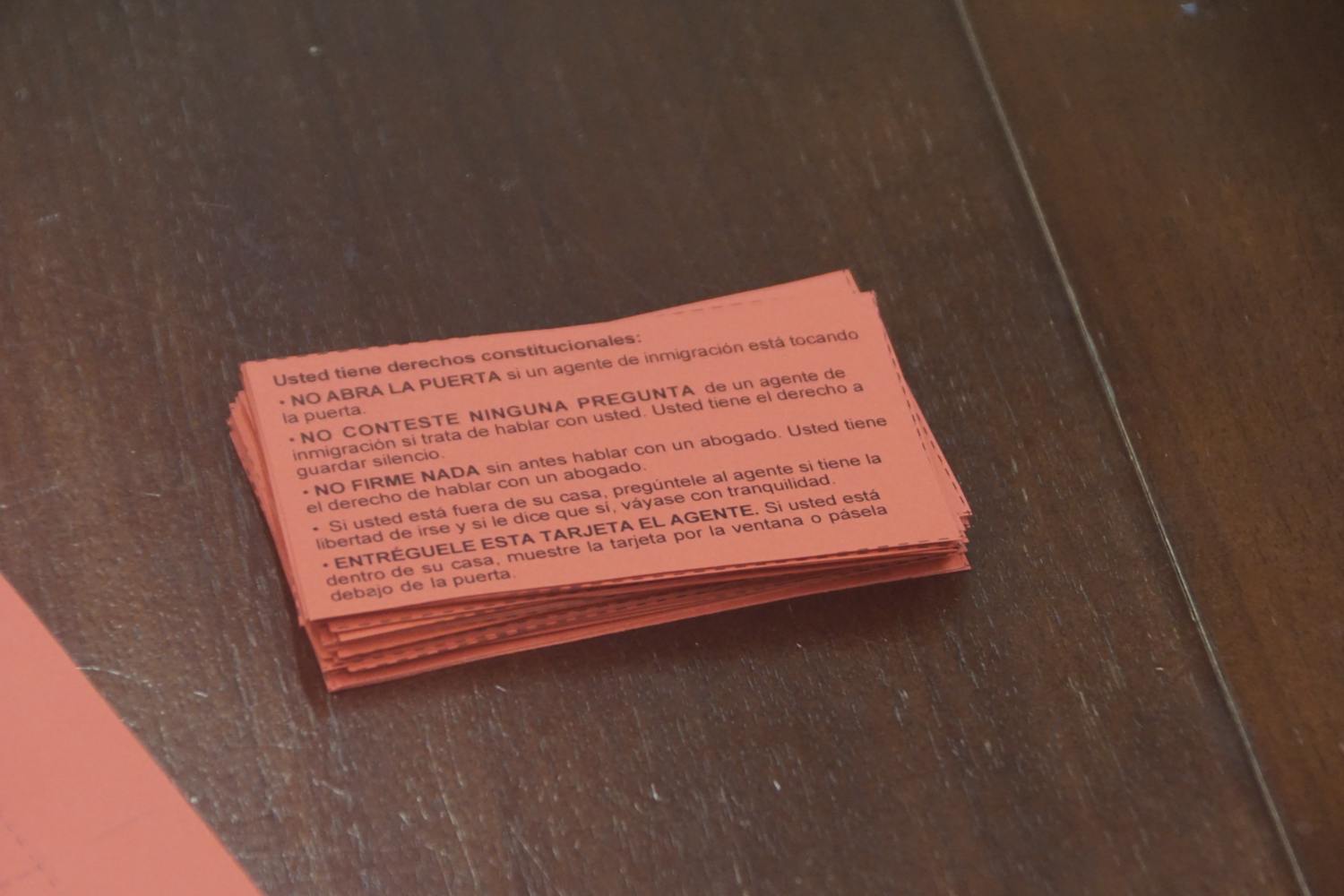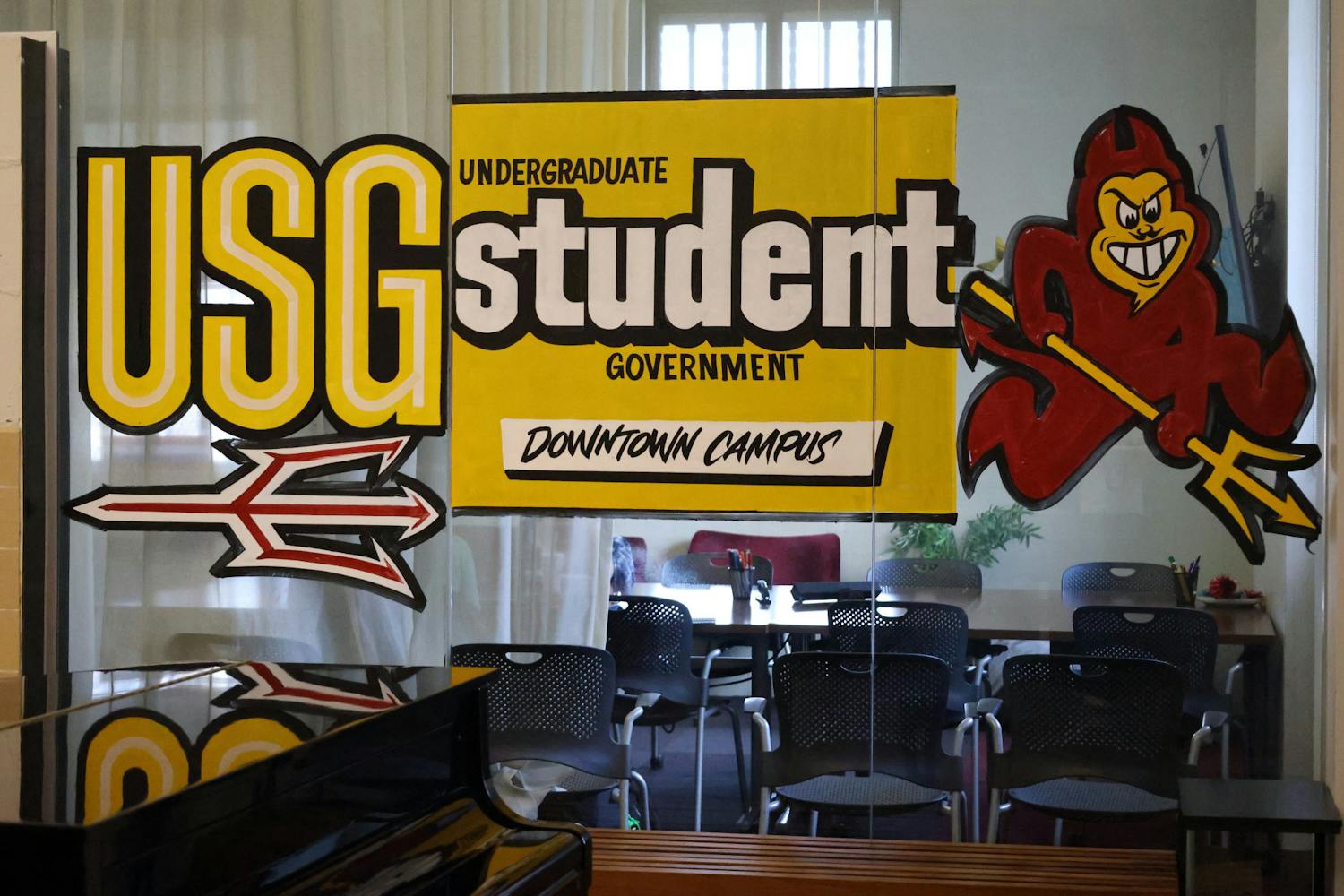Applications for boards and committees through the Associated Students of ASU and its Council of Presidents opened in early August and closed earlier this week. Boards and committees range from focusing on family resources, game day operations, disability advocacy and awareness, technology, sustainability and more.
Renuka Vemuri, Undergraduate Student Government Downtown president and a senior studying medical studies, said boards and committees are a good starting place for campus involvement.
"Students aren't necessarily excited about joining them, but they should be because there is so much they can do," Vemuri said. "This is a place where they can really get in touch with the people that can make those changes that they want to see."
Applications were open for all seats of the 13 student boards and committees, each with a unique point of advocacy, number of members and meeting schedule. They open every year for undergraduate and graduate students no matter their major, year in school or interests.
Committees "start from scratch every year," providing members a clean slate for their ideas, Vemuri said. Previous committee members described this process as a blessing and a curse, providing new ways to make change but creating barriers for plans made in previous years.
There was a separate application provided for those interested in joining the University Hearing Board, an organization handling students who have been "suspended or expelled from ASU for violations of the Student Code of Conduct."
"You need to know a lot more to be on the University Hearing Board, you have to go through more specialized training," Vemuri said.
Vemuri mentioned members of USG have used events and social media platforms to encourage students to join.
Student boards and committees act as a "feedback loop" – a mouthpiece for students wanting to share ideas for what should change on campus. Those ideas are organized into proposals and then brought through a process where they are eventually shared with ASASU and the Council of Presidents.
Previous co-chair of the Sustainability Advocacy and Awareness Board Jordan King said the interconnectedness of the boards and committees is imperative to making campus what students want it to be.
"As far as needing to implement (ideas and action plans), I think it was a bit challenging because there's so many factors and moving pieces to consider," said King, a graduate student studying sustainability. "It was really helpful to be able to see how these different people or decision-making bodies were connected and understand how we go about pinpointing certain areas to try and create change."
According to Katie Davis, this academic year's director of student affairs and a junior studying business data analytics, boards and committees fill out forms that she then turns into a monthly report for the Council of Presidents. Directors of student affairs act as a "liaison" connecting student boards and committees with the Council of Presidents, Davis said.
Each committee and board is led by student co-chairs and faculty advisors. Both roles help committee members filter through ideas, provide resources and give context if they have had past experience on the board.
"There's a great leadership experience, but also a really good collaboration that helped us figure out some of the problems a little more smoothly than we would have if we were just doing it alone," King said.
In addition, members of USG will take part in board and committee meetings to provide input if they have plans relating to the committee's goals.
"We worked as a collective to discuss different issues we wanted to tackle and bring forth to the different presidents of each of the campuses, as well as the senate board," said Kylie Vacala, an ASU alumna who was part of the Sustainability Advocacy and Awareness Board and USG Tempe. "We really do utilize our leaders on campus."
There have been several changes made throughout the years with the help of this process. These include water bottle refill stations, an updated no smoking rule and ride share locations. In addition, the construction of the Student Pavilion on the Tempe campus and the student section in Sun Devil Stadium were a result of this collaboration, USG and committee members said.
Outside of recommendations from advisors and past members of committees, there is currently no way to pass information from one set of committee members to the next from year to year. As a result, implementation of substantial change can be a lengthy process requiring years of coordination.
However, collaboration within committees and with other bodies – especially if boards are working together on a project – has allowed lots of accomplishments to be achieved, said Kendon Jung, a Zero Waste program manager, advisor to the Sustainability Advocacy and Awareness Board and doctorate student studying design, environment and the arts.
"A big success with the boards is seeing how the students grow and evolve as policymakers," Jung said. "I'm so proud of them at the end of the year when they're putting forward their recommendations; this is such high quality stuff and how (they) managed (themselves) to do that is just phenomenal."
Reach the reporter at awaiss@asu.edu and follow @WaissAlexis on Twitter.
Like The State Press on Facebook and follow @statepress on Twitter.
Continue supporting student journalism and donate to The State Press today.

Alexis Waiss is an assignment editor and senior reporter, covering breaking news and writing long-form stories. Alexis worked on SP's politics desk for a year, where she reported on the Legislature, higher education policy, student government, the city of Tempe and stories highlighting social justice. She previously worked as a fellow for the Asian American Journalist Association's VOICES program.




